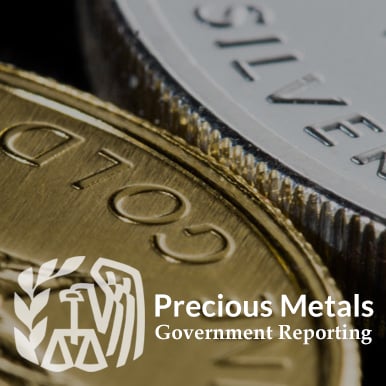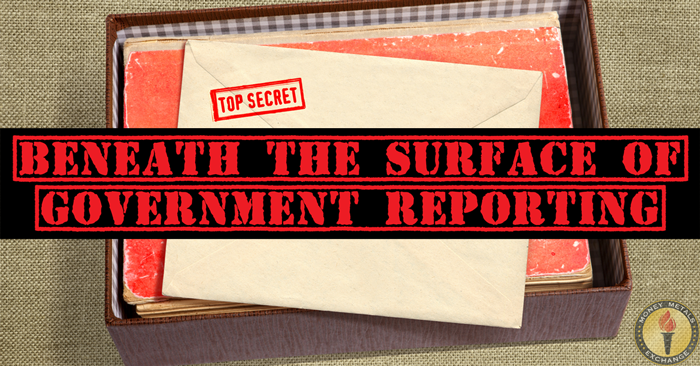
Americans once walked down the street with Gold and Silver jingling in their pockets and thought nothing of it. Today, precious metal coins are so marginalized some customers wonder if they might one day be prosecuted if authorities find out they are holding some.
It’s no wonder. For nearly 4 decades between Roosevelt and Nixon, gold bullion ownership was illegal. Anyone wishing to pick up some gold had to skulk around, keeping their transactions hidden.
How Do You Buy Gold and Silver?
Today, there are no restrictions on the types or quantities of bullion coins, rounds, and bars an investor can own. There haven’t been since 1974. But people still worry.
And even if most understand owning metal is perfectly legal (and understand the imperative of buying this financial insurance), they don’t want transaction details reported to Uncle Sam. They have plenty of reason to mistrust what officials might do with the information down the road.
As with other types of businesses, the overwhelming majority of precious metals transactions are conducted without any reporting requirement. However, dealers are subject to the anti-money laundering provisions in the deceptively named “Patriot Act,” enacted in 2001.
Some dealers report more customer transactions than the law requires. At Money Metals Exchange, we follow the law and have examined it very closely to be sure of our obligations. Under the law, we are not required to report your purchase of precious metals about 99.998% of the time, with one extremely rare exception. For a disclosure requirement to be triggered, BOTH of the following conditions has to be met:
- The transaction is (or related transactions are) larger than $10,000 in size, AND
- Payment is made using actual cash (i.e. Federal Reserve notes and US coins) or with two or more cash instruments (defined as money orders, cashier's checks, or traveler's checks) which, individually, are $10,000 or less but when totaled together equal more than $10,000. Personal checks, debits, bank wires, and credit card payments are NOT considered cash or cash instruments, and, therefore, purchases using them do not trigger disclosure by a dealer regardless of their amount(s).
The IRS disclosure document involved is called Form 8300, and it applies to all cash transactions in the broad U.S. economy meeting the above conditions – not just precious metals transactions. To date, Money Metals Exchange has completed nearly 1,000,000 transactions, and we have been required by law to file Form 8300 fewer than ten times.
Likewise, dealers are required to report the SALE of your precious metals only in extremely rare circumstances: According to IRS regulations (Precious Metals Tax Reporting), only those items and quantities that can be used to fulfill a regulated Futures Contract (RFC) trigger the 1099B reporting requirement. Those items are currently as follows:
- Sales of 50 oz. platinum (purity requirement of .9995) in bar sizes of 10 oz. or larger trigger a 1099B
- Sales of 100 oz. of palladium (purity requirement of .9995) in bar sizes of 10 oz. or larger trigger a 1099B
- Sales of 100 oz. of gold (purity requirement of .995) in not less than one 100 oz. bar, one-kilo bar (32.15 oz), or ten 10 oz. bars trigger a 1099B. Selling Gold Coins Tax Implications)
- Sales of 5,000 oz. of silver (purity requirement of .999) in not less than five 1,000 oz. bars or sales of 1,000 oz. in multiples of five trigger a 1099B
Silver and Gold Sales
Sales of silver bullion rounds, silver coins, 1 oz, 5, 10, kilo, and 100 oz. silver bullion bar sizes or any gold mint coins and rounds do not trigger a Form 1099B filing requirement.
It should be noted, however, that individual taxpayers have their reporting obligations as to their tax returns. Because the IRS currently considers precious metals to be property, not money, it expects investors to accurately report any capital gains or losses measured in fiat dollars when the bullion is sold. You are strongly urged to comply. But personal reporting is not required when the metals are purchased and not while the metal remains in your ownership. That capital gain or loss would generally be included in your income tax obligation at the state level, as applicable.
Dealers should be dedicated to maintaining the confidentiality of customer gold and silver transactions. Investors should buy metals with confidence; transactions with us are legal, secure, and discreet. There is no reason to feel like you are doing something wrong simply because you are accumulating precious metals to insulate yourself from inflation and financial turmoil.

About the Author:
Clint Siegner is a Director at Money Metals Exchange, a precious metals dealer recently named "Best in the USA" by an independent global ratings group. A graduate of Linfield College in Oregon, Siegner puts his experience in business management along with his passion for personal liberty, limited government, and honest money into the development of Money Metals' brand and reach. This includes writing extensively on the bullion markets and their intersection with policy and world affairs.







